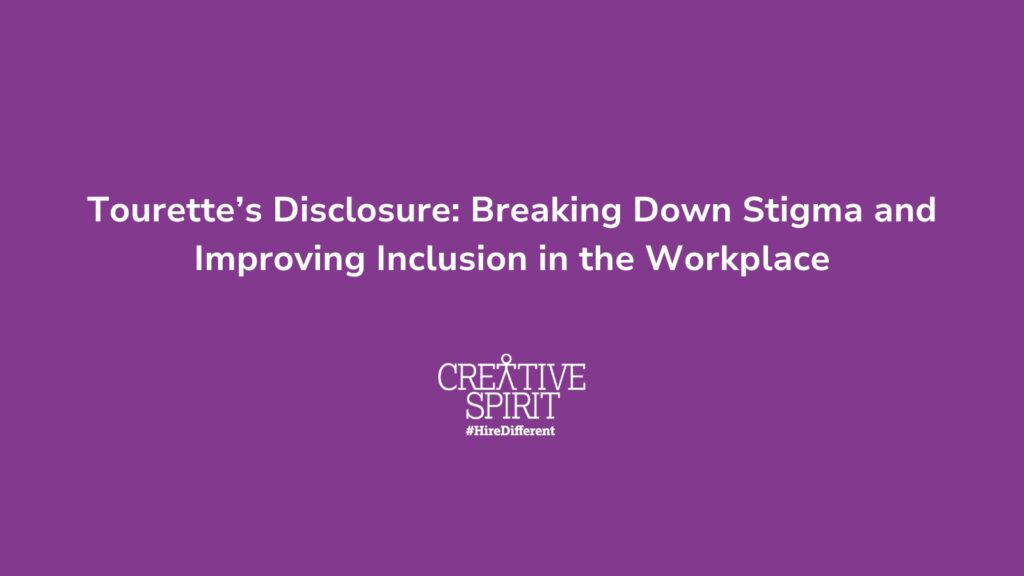Written By Menachem Rephun, Communications Manager Creative Spirit, and Joanna McElnea, Dyslexia/ADHD + Creative Spirit Community Manager

The Great Resignation is the term applied to the Covid-19 era trend in which a near-record 47.4 million employees left their jobs in favor of better opportunities, leading to a severe imbalance between worker supply and employer demand. For millions of people with disabilities, who were especially hard hit by the pandemic, getting rehired was not so effortless, due to ableism, discrimination, and lack of accessibility. Many employers are now desperate to find workers, as shown by the hourly wage increase of 6% in March 2022 (Forbes).
Our mission at Creative Spirit is to provide an innovative solution by encouraging companies to #HireDifferent by employing talented people with intellectual and developmental disabilities who are ready and able to work. This includes people with Tourette’s Syndrome (TS), a neurological condition causing involuntary motor or vocal tics that affects roughly 1% of the global population, or 78 million people worldwide. People with TS, like those with other conditions, are dependable, resilient, and adaptive thinkers with a variety of diverse interests, skills, and passions. Unfortunately, TS is a heavily stigmatized and misunderstood condition. According to a 2021 study in the Journal of Physical and Developmental Disabilities, 54.3% of participants reported “experiencing discrimination in finding a job and 47.7% in maintaining it.” One of the most widespread misconceptions is that people with TS routinely blurt out profanities. In fact, this tendency, known as coprolalia, affects only 10% of people with Tourette’s Syndrome. As Tourette.org notes, “Most employers still find accepting and accommodating wheelchair users and people with hearing impairments easier than understanding TS. Too many still think tics are ”bad habits,” symptoms of nervousness, or deliberate behavior. The idiotic and insulting images of people with TS presented in the media don’t help.” Dispelling these misconceptions is crucial to ensuring equal employment opportunities for people with TS.
One encouraging trend we’ve seen towards the de-stigmatization of Tourette’s (and disabilities in general) has been the number of high-profile individuals sharing their own diagnoses. A noteworthy example occurred in 2018 when pop star Billie Eilish revealed her Tourette’s diagnosis in an Instagram post after fans compiled a video of her tics. “I’ve never mentioned [my Tourette Syndrome] on the internet because nobody thinks I’m dead-ass,” Eilish wrote at the time. “As well as the fact I’ve just never wanted people to think of Tourette’s every time they think of me.” Eilish’s statement speaks powerfully to the anxiety many people with Tourette’s and other invisible disabilities experience over being judged due to their condition.
Every year from mid-May to mid-June, we recognize Tourette’s Syndrome Awareness Month (TSAM), which focuses on raising awareness of and de-stigmatizing TS. Many individuals with disabilities have found belonging online, locating other individuals with similar interests or diagnoses. Our own online community, Creative Spirit Connect, works to create a sense of community and educate the public about neurodiversity. TikTok in particular has skyrocketed as an advocacy tool for people with TS to share their challenges and experiences judgment-free. In a 2021 article on influencers with Tourette’s, the Atlantic noted that “compared with other online spaces, TikTok often feels like a paradise of judgment-free positivity,” offering a space where “wondering about other people’s lives is only natural, and that pretending not to notice someone else’s condition isn’t necessarily polite.” The report cites Warren Kirwan, the media manager at the disability-equality charity Scope, who noted that “Familiarity is one of the best ways to break down barriers. The more people know about [people with disabilities], they lose that awkwardness.”
Our team at Creative Spirit strives to emulate that understanding and non-judgmental approach. As a group made up of one individual with ADHD/Dyslexia, one individual who is hard of hearing, and one individual on the spectrum/with Asperger’s syndrome, we’re equipped to provide a connection between the disabled and non-disabled communities, along with fostering peer-to-peer connection within the disabilities community through our Facebook group, Creative Spirit Connect; the disability advocacy blog The Mighty; and connections with other online communities for people with disabilities. We understand that people with Tourette’s Syndrome entering the workforce might struggle with communication, partly due to anxiety about how ticks can cause misunderstandings (we covered some of these anxieties in our disability disclosure article). Our team has found upwards of 5 articles for both people with disabilities and mainstream audiences dedicated to resolving miscommunications at work. What we’ve observed is that many of the services at Creative Spirit can aid both candidates and employers. For example, we provide regular management training, help managers clarify objectives, empower employees with disabilities, encourage collaboration, train employees in professional writing, and help develop an accessibility plan for new hires with disabilities.
The list of extremely talented, influential, and successful people with Tourette’s syndrome covers a wide range of musicians, athletes, actors, educators, and politicians, including Seth Rogen, Dan Aykroyd, politician and activist Jumaane Williams, and the great English writer Samuel Johnson. Some people with Tourette’s have taken the initiative to improve representation themselves. In 2019, Sarah Baldwin, an NJ Teen with Tourette’s syndrome, contributed to that goal when she and two friends co-created Twitcha, a female superhero with Tourette’s, in a graphic novel Baldwin wrote and illustrated.
“We wanted Twitcha to overcome but not conform for the sake of how everyone thinks she should act,” Baldwin said, according to a report by The Sunpapers.com. “She accepts her tics and her differences and decides to spread awareness to help others.”
This message of self-esteem and understanding is one that Creative Spirit actively promotes. People with disabilities have a huge amount to contribute, and our guiding principle is that no one should be denied equal opportunities for fair-wage employment. Together with our partners and advocates, we’re working to educate employers and ensure that workspaces are fully inclusive and accessible, allowing people with disabilities to feel comfortable and deliver their best work. Change starts now, and we can get there together.
Sources:
- https://www.forbes.com/sites/ashleystahl/2022/06/09/the-last-of-the-great-resignation/?sh=221e034321c6
- https://www.theatlantic.com/ideas/archive/2021/07/disability-influencers-tourette-tiktok/619468/
- https://grammar.yourdictionary.com/style-and-usage/causes-of-poor-writing-and-communication-in-the-workplace.html
- https://www.brainandlife.org/articles/as-a-child-with-tourette-syndrome-michael-davoli-learned-to
- https://www.forbes.com/sites/forbescoachescouncil/2022/02/15/five-sources-of-miscommunication-in-the-workplace-and-how-to-mitigate-them/?sh=3b6b5d4a5c37
- https://www.insider.com/tourette-syndrome-influencers-using-platform-to-educate-face-backlash-2020-2






